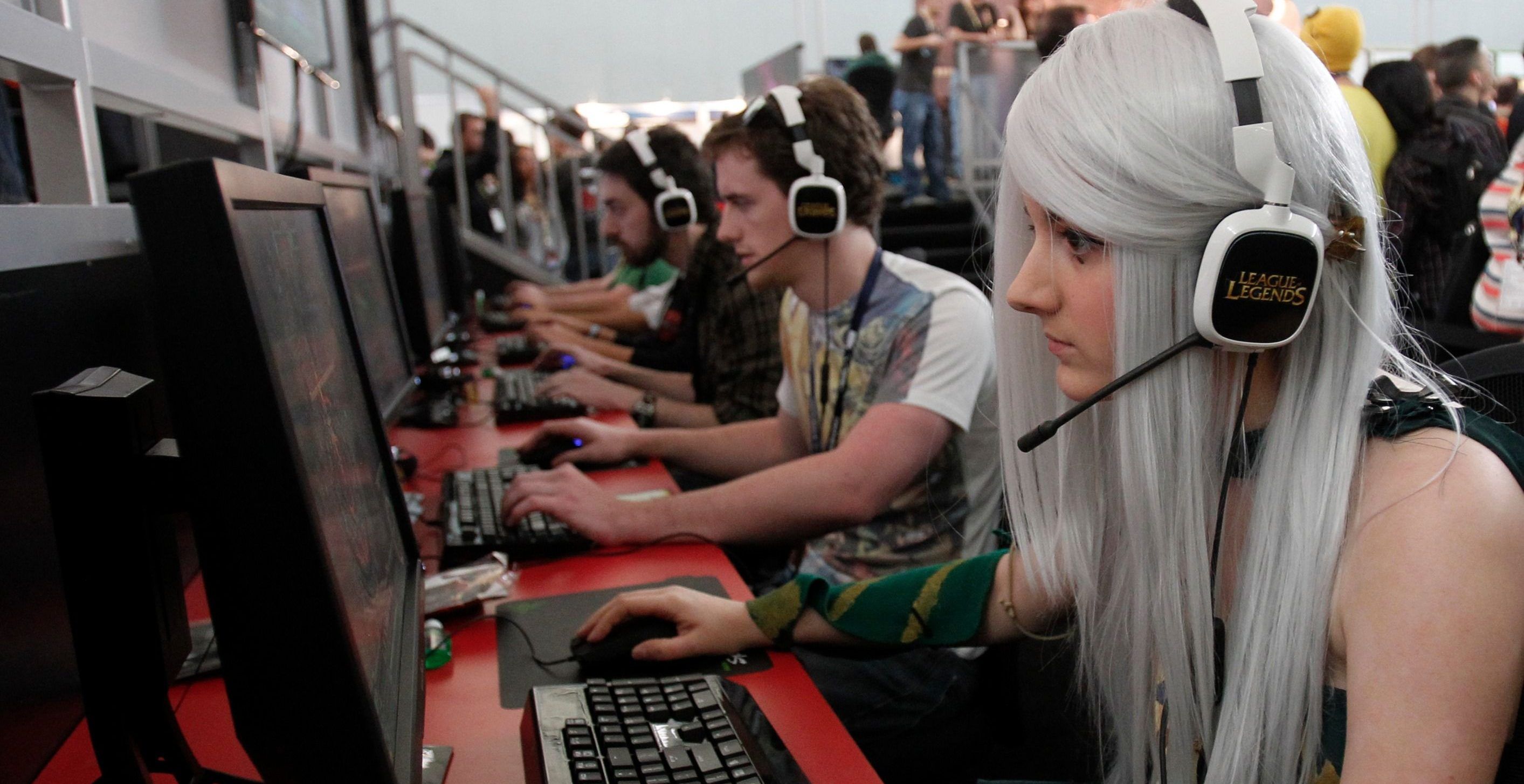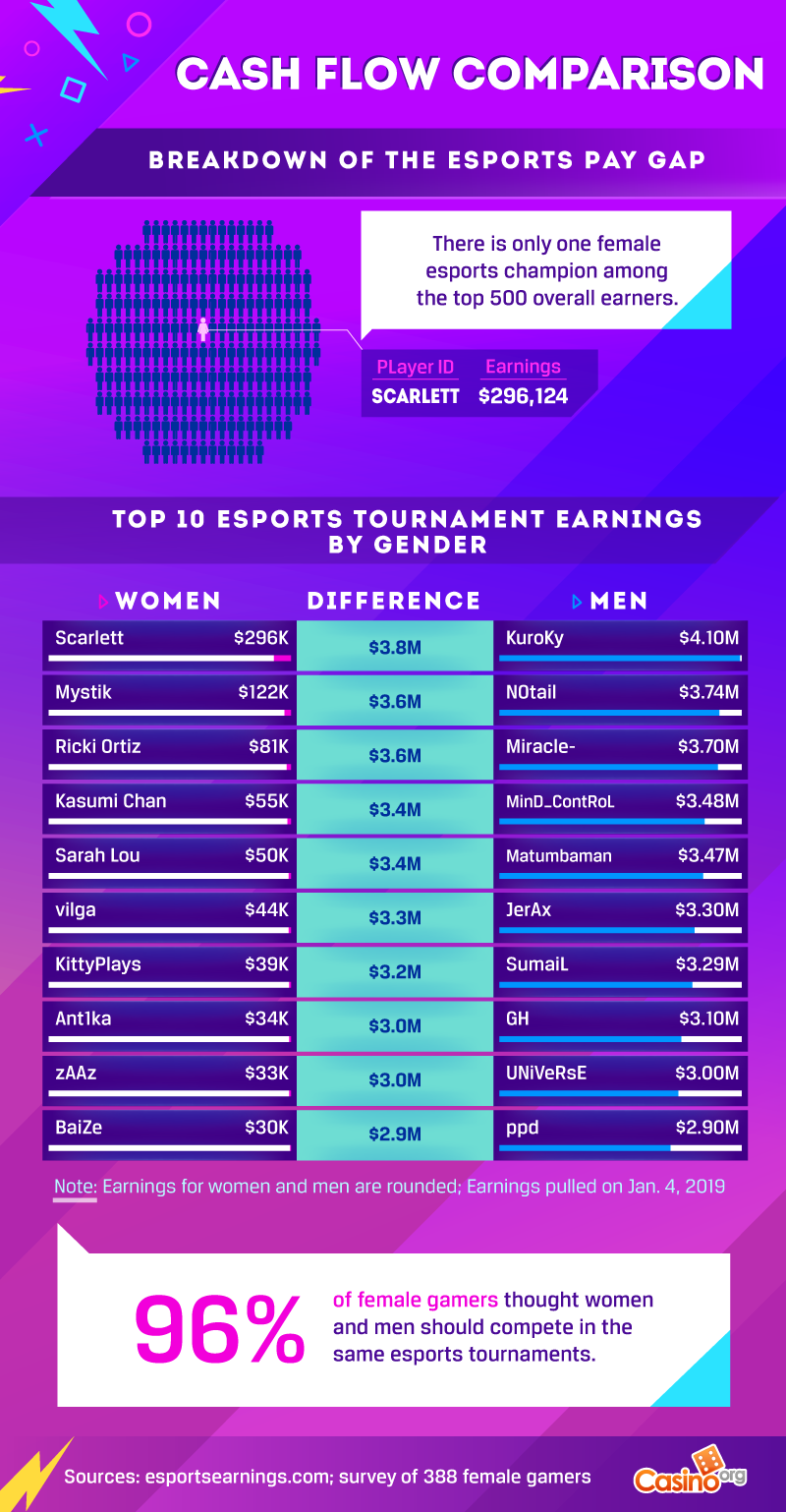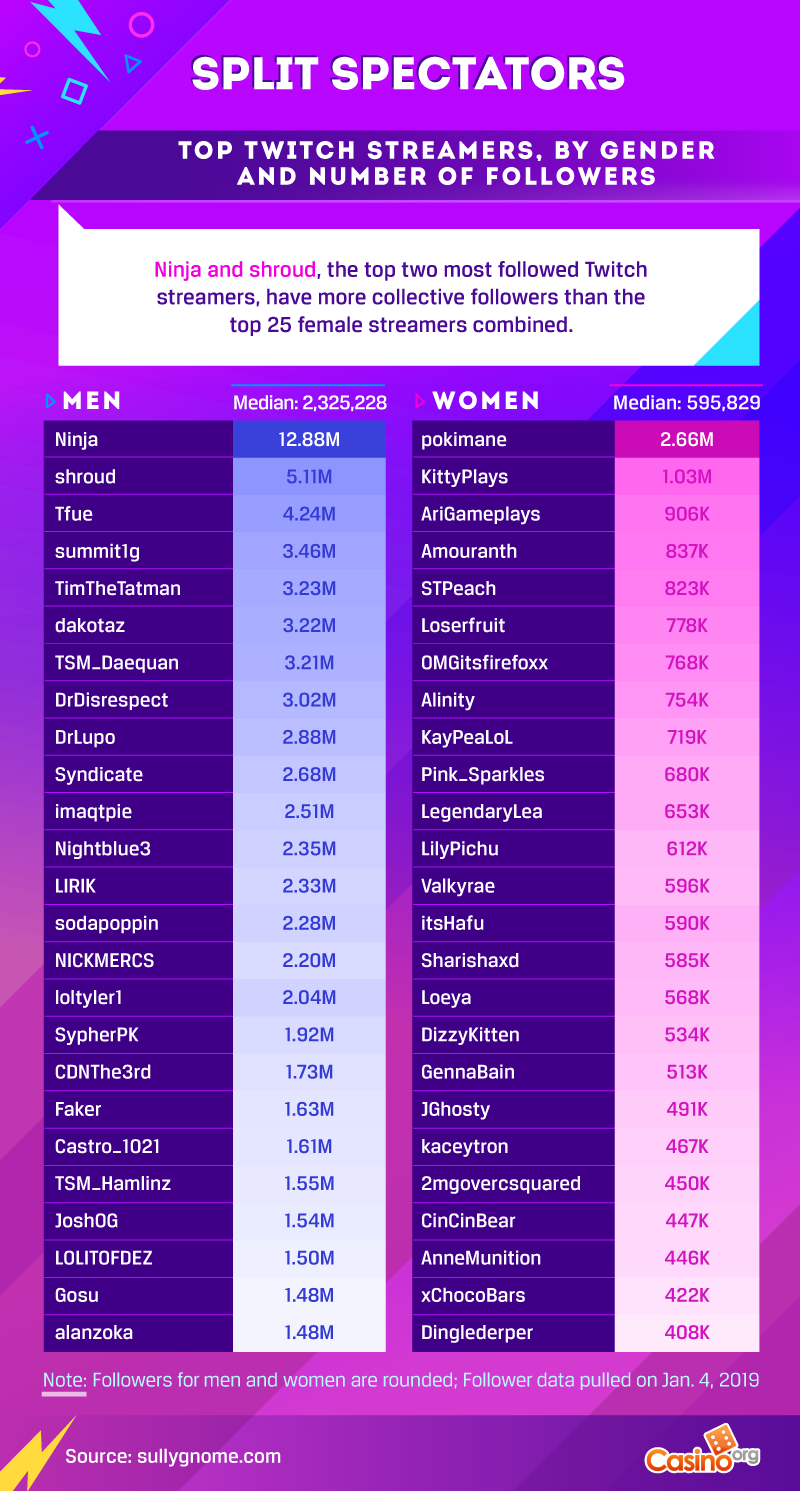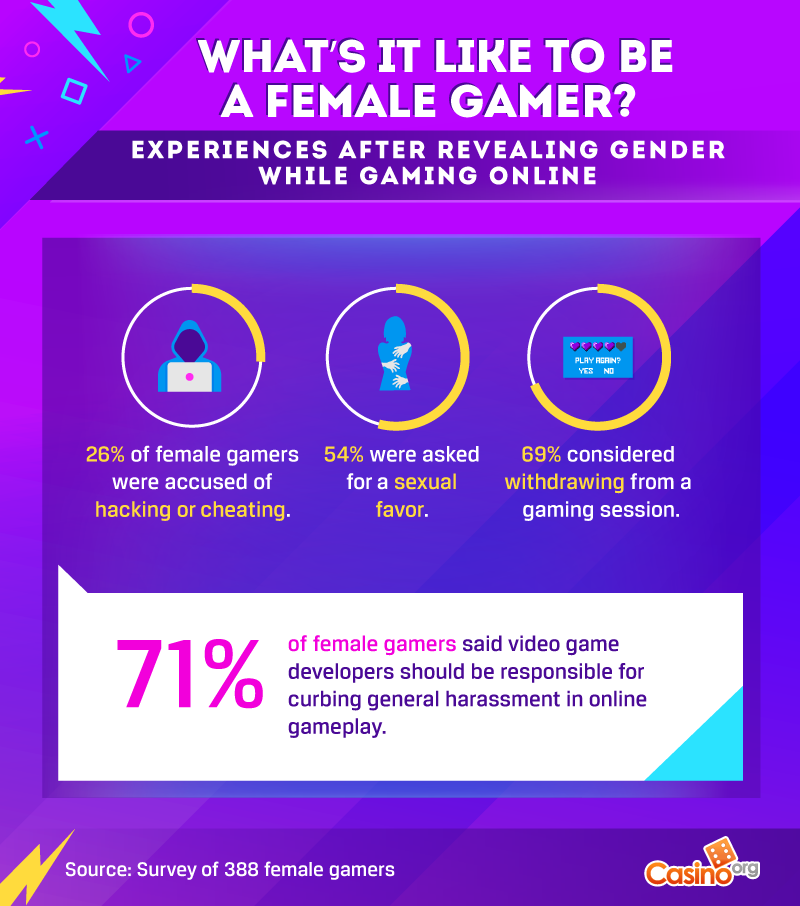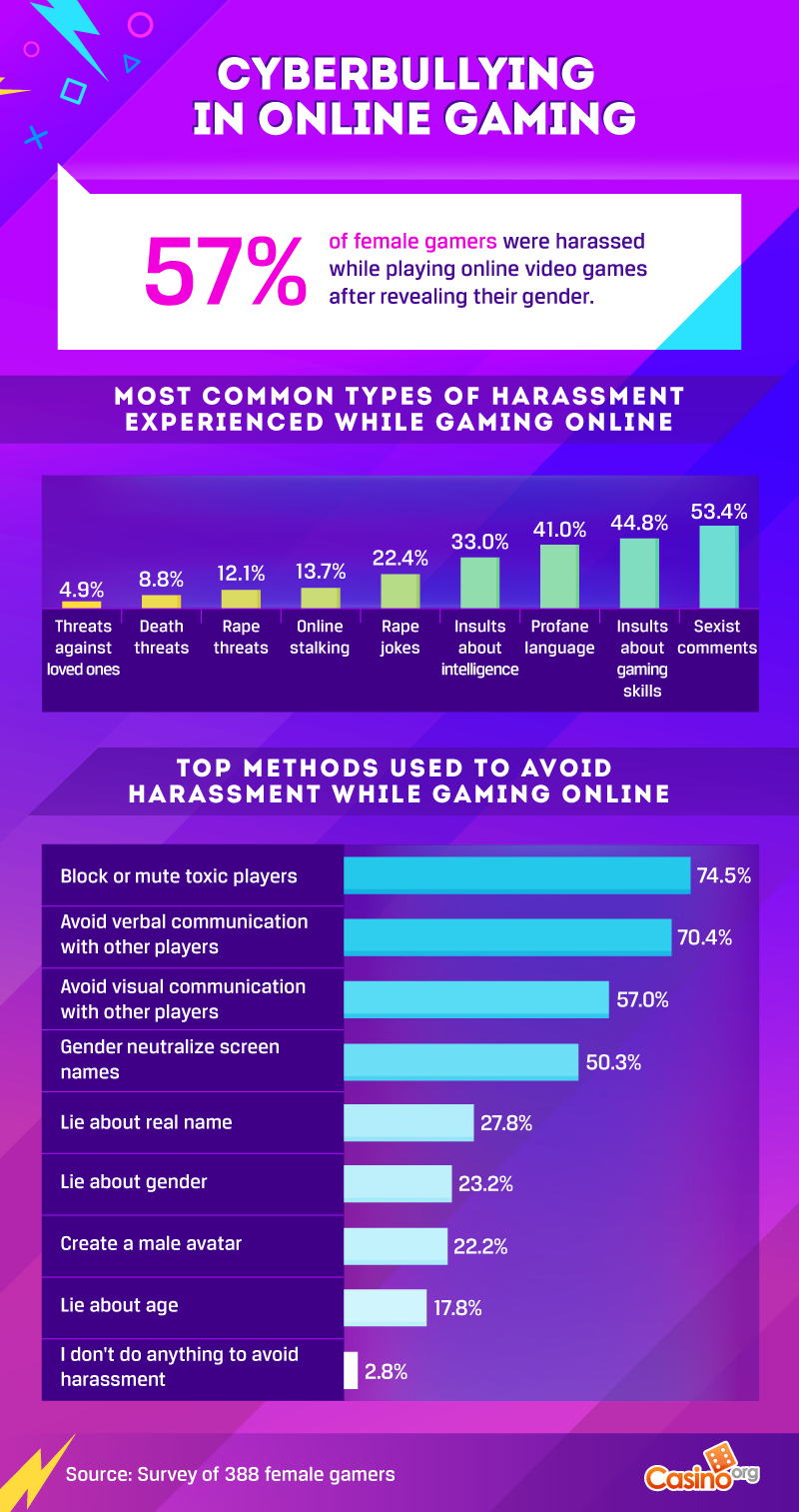For years gamers have been stereotyped as lazy, anti-social loners, with no life and no real friends. Over time these stereotypes have thankfully started to fade. With the rise of esports and a growing interest in gaming-based videos and livestreams, more people than ever before are gaming and watching others game.
However, while we may be shaking some of the common gamer stereotypes, one problem the industry can’t seem to shake is the rampant sexism, which all too often crosses the line into harassment.
Gender Inequality
A recent study of the gender differences in esports makes for eye-opening reading. While most people are aware of the imbalance, the true extent of it is still shocking to see.
Statistics show that there is just one woman among the top 500 eSports earners, and she’s sitting at position 301 in the list. Furthermore, the top 10 female esports gamers earned just $784,000 between them, while every single man in the top ten earned more than three times that amount.
A list of top Twitch channels makes for equally dismal reading.
The top male streamers, Ninja and shroud, have more followers between the two of them than the top 25 female streamers combined. While Ninja’s unusually high figures do skew the data slightly, the gap is still incredibly wide. The top 10 male streamers all have more followers than the top female streamer, pokimane. When we move to the second highest female streamer, KittyPlays, the difference is even more stark, as all the 25 top men have larger follower numbers than her.
The Bigger Issue
This disparity isn't the only issue women face. The Casino.org survey found out that 57% of female gamers surveyed experienced harassment online when others found out their gender. That’s more than half.
The frequent harassment many women face could easily account for at least some of the disparity in figures. Both streaming and content creation are already taxing mentally. If you add to this stress the very real possibility of an influx of extra nasty dms, comments, or messages, just because of your gender, it's no wonder fewer women chose these paths. It takes a strong personality to overcome that.
Even those who fight the odds aren’t immune to the effects of harassment.
Chiquita Evans, the first woman to be drafted into the NBA 2K League, has spoken out about being frozen out in the league Combine, as soon as she hit voice chat.
The result is many women are put off from making themselves public figures, and those who fight against it still face many obstacles. But what about on a smaller scale? Does this harassment effect regular gamers, those why shy away from the spotlight?
Sadly, yes. While keeping out of the public eye may reduce the issues, I can personally testify that in-game harassment is still very much alive and kicking.
Over the years I’ve had unsolicited and explicit dms and whispers, as well as abuse over voice chat, with numerous sexist statements and names used. Almost always the harassment has begun after I’ve revealed myself as female in some way, either by speaking or by having a gender specific avatar or username.
My experience is not uncommon, and numerous other women have had it far worse than I have. As well as the sexist comments, insults about gaming skills, and profanities used most commonly, 13.7% of those surveyed have experienced online stalking, 12.1% have had rape threats, 8.8% have had death threats, and 4.9% have had threats made against their families and loved ones.
After revealing their gender, 26% of female gamers report being accused of hacking or cheating, 54% were asked for sexual favors, and 69% considered withdrawing from a gaming session as a result of the issues.
So, What's Being Done About It?
Unfortunately it's often down to women to protect themselves. The survey shows that 74.5% of female gamers block or mute toxic players, while 70.4% avoid voice communication entirely. Just over 50% (50.3%) use gender neutral screennames, while 27.8% lie about their real name and 23.2% lie about their gender. Only 2.8% of those surveyed do nothing to avoid harassment.
In one online game I created and leveled a male avatar, just so I could more easily sit in a public area and trade without harassment, something 22.2% of those surveyed have also done.
Are Developers At Fault?
The gaming community has a long way to go in terms of how it treats women. While some studios are making great strides in terms of employing women, not enough is being done in wider gaming communities.
Of the women surveyed, 71% agreed that developers should be responsible for curbing general harassment in online gaming. This is because many people feel that game developers could, and should, be doing more to quell toxicity in their online communities.
It doesn’t matter how fantastic a game is, if the community playing it is toxic then gamers, especially those being harassed, will leave in droves.
While women can take steps to protect ourselves, why should we need to adjust the way we play a game, just because of someone else’s prejudice?
Recently racism and homophobia in the gaming industry has hit the news. Players using racist slurs or homophobic insults are being held accountable for their actions, with others quick to condemn their behavior. Why is sexism not treated the same way?
Better reporting systems and ways to combat toxicity are beginning to filter in, and are much needed, but we also need to ensure that these are protecting everyone, including women.
How Can We Improve?
There needs to be greater accountability for online actions. The issue of what counts as “banter” and what is offensive needs to be addressed. Everyone should feel safe playing online, and those who verbally abuse others in any way need to be properly held to account.
The wider issue is that the gaming community as a whole needs to accept and embrace women. A shift in culture needs to happen, in order to address the issue at its root.
Women don’t want special treatment, despite what some may think, we just want to play games without having to worry about being harassed if we reveal our gender. This is backed up the fact that an enormous 96% of female gamers think men and women should compete in the same eSports tournaments.
Judge our skill, not our gender.
In order to see a rise in women in eSports and content creation, a shift needs to happen that makes sexism as unacceptable as any other offensive language.
Women just want the ability to play whatever games we like and be accepted into those communities, without having to disguise our sex or change the way we play to avoid harassment. That should be a simple ask, so why isn’t it?

